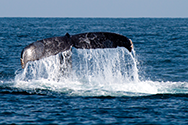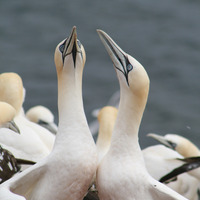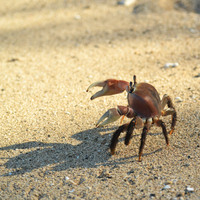Overview
Project introduction
The ODIP project is a Coordination and Support Action of the EU Research Infrastructures programme. Its first phase runs from 1st October 2012 till 31st September 2015 as contract 312492 within EU FP7. Its second phase will run from 1st April 2015 till 31st March 2018 as contract 654310 within EU HORIZON 2020.
Ocean and marine data are recognised as valuable resources which have a high cost of acquisition and as such should be well managed and made as widely available to end users as possible for a variety of uses including scientific research, marine management and planning, policy and decision making, and economic activities.
Europe, the USA, Australia and IOC/IODE are making significant progress in facilitating the discovery and access of marine data through the development, implementation, population and operation of national, regional or international distributed ocean and marine observing and data management infrastructures such as SeaDataNet, Geo-Seas, IOOS, the Australian Ocean Portal and the IODE Ocean Data Portal. All of these developments are resulting in the development and implementation of standards for the formats of metadata, data, data products, quality control methods and flags, common vocabularies. They are also providing services for data discovery, viewing and downloading, and software tools for editing, conversions, communication, analysis and presentation, all of which are increasingly being adopted and used by their national and regional marine communities.
There is also a general trend towards the use of the basic ISO and OGC standards, however these allow the use of different profiles and vocabularies. As a result there are differences in the standards used in the different regions which hinder their direct exchange and use at an international and global scale, and as a result act as a barrier to the realisation of global portals such as the IODE Ocean Data Portal and GEOSS. There is therefore a need to undertake activities which lead to the development of common standards, where possible, and otherwise improve interoperability between the national and regional systems and services. However, it should be noted that implementing new standards can have serious implications for the existing infrastructures because these systems comprise many components that may need to be modified. In a number of fields, developments are just starting and there is still a lot of work to be done before practical standards are delivered that can be promoted on a wide scale, for example in the case of using OGC SensorML for real-time data exchange. In cases such as these the synergies within international collaborations can also have direct effects on the development and the later implementation of these standards in the national and regional infrastructures.
The Ocean Data Interoperability Platform (ODIP) contributes to the removal of barriers hindering the effective sharing of data across scientific domains and international boundaries. ODIP includes all the major organisations engaged in ocean data management in EU, US, and Australia. ODIP is also supported by the IOC/IODE who participates in its implementation and operation, closely linking this activity with its ODSBP project.
The ODIP platform organises international workshops to foster the development of common standards and develop prototypes to evaluate and test selected potential standards and interoperability solutions.
The ODIP partnership also provides a forum to harmonise the diverse regional systems, while advancing the European contribution to the global system. The products and services developed by ODIP are actively promoted at the international level through IOC/IODE, the Research Data Alliance and GEOSS striving for global interoperability beyond the ODIP partners.
ODIP not only facilitates the dissemination of best practice and the transfer of technology, through the development of international co-operation, it also leads to the application of the results of EU projects to the broader international community. This helps strengthen the role of the EU on the international stage while contributing at the integration and strengthening of the European Research Area (ERA).



